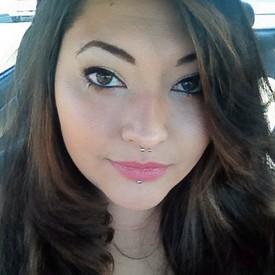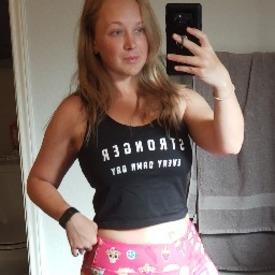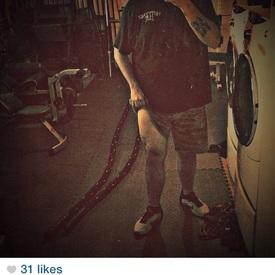Anorexia Recovery Trust Nutritionist or Cals?

jess1992uga
Posts: 603 Member
Hi everyone--
This is only place I knew to post this. Basically I have been reading that if you are recovering from anorexia the only way to repair your metabolism is eating a 2500 calorie diet and be sedentary or 3000 calorie if under 25 years old. I am 21, have had anorexia since I was 14 (but an ED since I was 6) and have been to countless treatment centers and nutritionists and never heard this. All of my meal plans have been based on exchanges not calories and I have never heard of a talk of 2500 or 3000 calorie minimums. I am just scared. My biggest fear is to gain back to a normal weight (I am currently 90 lbs and 5 ft 7.5 in up from my low of 85 lbs) and have to diet the rest of my life because my metabolism doesn't repair. From what I have read my metabolism won't repair if I eat below the 2500/3000 minimum. I would like to one day be able to maintain on 2000 calories.
So do I trust my nutritionist and the meal plan she gave me even though I am pretty sure its not 3000, maybe not even 2500 (she has told me it will increase and my weight gain plateaus) or do I stop seeing her and just do the calorie thing? I really like seeing her and we have been working together for three years...I am just finally listening to her and gaining weight. Also, I am not sedentary due to course requirements for my university so I have to take an activity class ( I do cycling 3 times a week)..
Thanks for reading and responding.
This is only place I knew to post this. Basically I have been reading that if you are recovering from anorexia the only way to repair your metabolism is eating a 2500 calorie diet and be sedentary or 3000 calorie if under 25 years old. I am 21, have had anorexia since I was 14 (but an ED since I was 6) and have been to countless treatment centers and nutritionists and never heard this. All of my meal plans have been based on exchanges not calories and I have never heard of a talk of 2500 or 3000 calorie minimums. I am just scared. My biggest fear is to gain back to a normal weight (I am currently 90 lbs and 5 ft 7.5 in up from my low of 85 lbs) and have to diet the rest of my life because my metabolism doesn't repair. From what I have read my metabolism won't repair if I eat below the 2500/3000 minimum. I would like to one day be able to maintain on 2000 calories.
So do I trust my nutritionist and the meal plan she gave me even though I am pretty sure its not 3000, maybe not even 2500 (she has told me it will increase and my weight gain plateaus) or do I stop seeing her and just do the calorie thing? I really like seeing her and we have been working together for three years...I am just finally listening to her and gaining weight. Also, I am not sedentary due to course requirements for my university so I have to take an activity class ( I do cycling 3 times a week)..
Thanks for reading and responding.
0
Replies
-
I really do not know what to suggest, Jess. Is she a dietician or a nutritionist as nutritionists do not have the same level of qualification.
Generally, those in ED recovery are expected to gain 0.5-1kg a week, eating 1000 calories above their maintenance, and usually this is 2500-3000 calories, yes. Here is a paper you might be interested in, if you have the time to scan through it. Either way, you need to lose your fear of gain, as I have said many times, and focus on getting your body to a healthy place. You have to mentally reach a place where the scale ceases to matter, beyond as an indicator of whether you are getting where you need to be.
http://www.rcpsych.ac.uk/files/pdfversion/cr130.pdf0 -
E.A.T. you know, they talk about girls starving themselves & it's making them fat.0
-
E.A.T. you know, they talk about girls starving themselves & it's making them fat.
Huh?0 -
The method you're talking about is called MinnieMaud if you want to look into it more. Maybe you could bring it up to your nutritionist the next time you speak to her. I think it would be better if you had your nutritionist's guidance and assistance to start MM if that's what you want to do! Whatever method you go with, absolutely keep seeing your nutritionist!!0
-
If you have a good relationship and trust your nutritionist, then do what she says will help. You've already made progress with her. If you have specific concerns, talk to her about them. She is a professional and judging from what you've said about your improvement seems to know what she's doing. Good luck! It's good to hear you're on the road to recovery
 0
0 -
E.A.T. you know, they talk about girls starving themselves & it's making them fat.
I do not think that is really answering her question nor is it very helpful to someone in Jess's position.0 -
Recovery can be complex, confusing, hard. If you don't feel like the nutritionist you're currently seeing is qualified, I highly encourage you to seek out a different medical professional to work with.
As for the eating regimen, I recommend you bring your questions and concerns to a doctor who specializes in ED recovery.
Best wishes to you in your healing

 0
0 -
I can't really advise you but do you already log your food? If not, do you feel like you can do that without getting obsessive and restricting? Maybe the fear of that happening is why they never gave you a calorie goal before.0
-
It's going to be hard but they are trying to help you. Maybe ask them to explain why?0
-
You need to realize that it'll take a tremendous amount of calories to not only recover weight but also repair the physiological damage experienced. So do not underestimate how much energy your body requires for this process to be successful. I'm a former personal trainer who has worked with a few recovering anorexics and their teams have told me that many girls (depending on age, height, absence of period, etc.) are on 2500 to 4000 calorie plans - minimum.0
-
I agree. Killed my thyroid by not eating......0
-
I second pretty much what everyone says (except for that eat comment- that was just rude)!
Good luck Jess!0 -
Thanks everyone and I meant dietitian not nutritionist. She is very qualified and works for my school. I mean I am gaining on my meal plan now. Here it is.
B-fast: 2 starches, 1 dairy, 1 fruit, 18g almonds (usually 100 cal instant oatmeal with 1/2 english muffin, 3 prunes, Activia light, almonds)
Lunch: 3 starches, 3-4 oz protein, 1 cup veggie (steamed or 2 cup raw), 1 fruit, 1 dairy, 2 T sunflower seeds
(usually 1/2 cup tuna on fat free tortilla with 1/2 cup peas, 2 cups raw slaw, pear, 1 cup milk, 2 T seeds)
Dinner: 3 starches, 3-4 oz protein, 1 cup veggie (steamed or 2 cup raw), 2 T olives (usually fish, sweet potato, 1/2 cup peas, 2 cups spinach, olives)
Snack 1: 370 cal bagel and 30-45 cals spread
Snack 2: Fruit, starch, and dairy
Snack 3: Fruit and dairy0 -
Jess,
You're in treatment and you're working with a dietician that you like. Hang in there and listen to what she tells you. You've come a long way, just keep moving forward.0 -
You should be getting advice from someone specifically trained in anorexia re-feeding. Not just any old nutritionist. The main thing, though, is you should not limit your food intake at all. A calorie target closer to 3000 is ideal. Higher would be better if you could manage it. Most of all, learn to love and nurture your body. Good luck. And remember recovery is difficult, confronting, terrifying and overwhelming. But you can do it.0
-
If that meal plan is from your dietician, it looks like it could be pretty flexible and actually add up to a good amount of calories. I'd recommend asking your dietician about the calorie range she's aiming for; it's entirely possible she wants you to work your way up to eating 3000 calories a day, but just hasn't mentioned it to you yet (maybe she thinks you'd worry about that number, thinking it's too high.) If she knows that you're totally ready to eat the calories you need she might speed things up, or at least explain the plan more to you.0
-
I think part of anorexia recovery is learning to trust and let go of your need to control what you eat. I could be wrong, but IMO, following what your nutritionist plans for you seems like the best road to recovery. Talk to her about your options though and the plans you've heard about, let her know you might be interested and talk about why the plan might or might not work for you.0
-
Jess,
You're in treatment and you're working with a dietician that you like. Hang in there and listen to what she tells you. You've come a long way, just keep moving forward.
:drinker:0 -
I really suggest you visit www.youreatopia.com
There are articles (upon articles upon articles) all based on proven scientific research about the effectiveness of the MinnieMaud (aka eating 2500-3000 calories a day) method. And I think it answers just about every question about every process you could ever think of! Plus, there's a forum for support, questions, inspiration, real life success stories.0 -
Thanks everyone and I meant dietitian not nutritionist. She is very qualified and works for my school. I mean I am gaining on my meal plan now. Here it is.
B-fast: 2 starches, 1 dairy, 1 fruit, 18g almonds (usually 100 cal instant oatmeal with 1/2 english muffin, 3 prunes, Activia light, almonds)
Lunch: 3 starches, 3-4 oz protein, 1 cup veggie (steamed or 2 cup raw), 1 fruit, 1 dairy, 2 T sunflower seeds
(usually 1/2 cup tuna on fat free tortilla with 1/2 cup peas, 2 cups raw slaw, pear, 1 cup milk, 2 T seeds)
Dinner: 3 starches, 3-4 oz protein, 1 cup veggie (steamed or 2 cup raw), 2 T olives (usually fish, sweet potato, 1/2 cup peas, 2 cups spinach, olives)
Snack 1: 370 cal bagel and 30-45 cals spread
Snack 2: Fruit, starch, and dairy
Snack 3: Fruit and dairy
This sounds like an overall good plan.
If you are concerned it is not enough calories just ask the dietitian next time you see her.0 -
Trust the specialist over the internet. You are working with a specialist, trust him/her. Anyone can post anything on a web page, and it can be from very helpful to extremely dangerous.0
-
I think that is amazing progress, your dietitian knows your history better than anyone here. I encourage you to stick to the plan that is working and keep working with your dietitian. Talk to her and explain that you want to understand more, logging on MFP may or may not be helpful for you, I feel it may be a distraction right now.0
-
I think you need to take a deep breath, try to relax as much as possible, and talk to the nutritionist about what you've read. I also think you need to discuss with your doctor, your therapist, or another trusted source about whether MFP is even appropriate for you to be frequenting until and unless you're in recovery.
All my best wishes for your health.0 -
I think you can bring up the topic to your dietitian and see what she says. 2500 to 3000 calories seems like a lot but recovering anorexics are often put on diets that consist of that amount or higher. When I was recovering and in refeeding, there were days I ate that much but most of the time I was at around 2000 calories.
So far, I would just keep on doing what you're doing!
You will maintain on 2000 eventually!0 -
i woudl imagine theres a reason that your nutritionist hasnt mentioned actual numbers of calories...
speak to her about your concerns.0 -
I don't have any advice on your situation (calories wise)
but I do want to say just keep going. You can do it & will do it.
Keep it up.0 -
stravation mode it does exist im anorexic and was eating 1200 calories and was maintaining then i upped it to 1900 and gained a pound then hit a plateau and stopped gaining0
-
I think part of anorexia recovery is learning to trust and let go of your need to control what you eat. I could be wrong, but IMO, following what your nutritionist plans for you seems like the best road to recovery. Talk to her about your options though and the plans you've heard about, let her know you might be interested and talk about why the plan might or might not work for you.
You're not wrong. That's pretty much eat. The idea is called intuitive eating. Basically, you want to learn to eat when you're hungry, and stop when you're full. If you are recovering from anorexia, this is not as easy as it sounds. But it might be, in the long run. Someone who has been restricting is, naturally, going to be really hungry when they start eating again. This can be scary to the recovering anorexic. But the longer you restrict, the more food you're going to need. And yes, some may need around 3,000 or 4,000 calories a day. The idea, though (and this is often how it works) is that the more you eat, the more your body (and metabolism) repairs itself, the easier it will get and the less you'll have to eat. Until you can eat a normal maintenance amount and your weight gets steady.
Not all recovering anorexics are going to need the same amount of calories. It depends on many variables:
How long they were restricting (someone who was restricting 3 months, for example, may not need to repair their body as much as someone who was restricting for 12 months)
How much weight they lost
Whether they reached the critical BMI
And other health complications
The best thing to do is not bother reading the things online. Speak to your doctors. Recovery from eating disorders is a team effort. The team is there to help you understand why you are on the meal plan you are on. While those tips are good for someone who cannot afford treatment, if you can afford treatment... speak to the professionals. Good luck OP. Recovery is worth it. 0
0 -
I really suggest you visit www.youreatopia.com
There are articles (upon articles upon articles) all based on proven scientific research about the effectiveness of the MinnieMaud (aka eating 2500-3000 calories a day) method. And I think it answers just about every question about every process you could ever think of! Plus, there's a forum for support, questions, inspiration, real life success stories.
I totally agree:
http://www.youreatopia.com/blog/2011/9/14/i-need-how-many-calories.html
This article really really helped my understanding of what I needed for my recovery.
Best of luck 0
0 -
Thanks everyone and I meant dietitian not nutritionist. She is very qualified and works for my school. I mean I am gaining on my meal plan now. Here it is.
B-fast: 2 starches, 1 dairy, 1 fruit, 18g almonds (usually 100 cal instant oatmeal with 1/2 english muffin, 3 prunes, Activia light, almonds)
Lunch: 3 starches, 3-4 oz protein, 1 cup veggie (steamed or 2 cup raw), 1 fruit, 1 dairy, 2 T sunflower seeds
(usually 1/2 cup tuna on fat free tortilla with 1/2 cup peas, 2 cups raw slaw, pear, 1 cup milk, 2 T seeds)
Dinner: 3 starches, 3-4 oz protein, 1 cup veggie (steamed or 2 cup raw), 2 T olives (usually fish, sweet potato, 1/2 cup peas, 2 cups spinach, olives)
Snack 1: 370 cal bagel and 30-45 cals spread
Snack 2: Fruit, starch, and dairy
Snack 3: Fruit and dairy
It looks like your meal plan is set to eat between 2500 and 3000 calories. However, it also looks like you are making low calorie choices in each of your food exchanges (based on the examples you gave). I'm assuming you are still in a stage of recovery where you are writing your food choices down, so your dietician should be able to see it and hopefully will discuss that. I think each of us who have had this in the past know why a professional would avoid discussing numbers (such as calories) since it can be such a focal point for obsession. At this point you should just be thinking about one day at a time. If you start worrying about the lasting implications of a long-term eating disorder, you will drive yourself nuts.0
This discussion has been closed.
Categories
- All Categories
- 1.4M Health, Wellness and Goals
- 396.9K Introduce Yourself
- 44.2K Getting Started
- 260.9K Health and Weight Loss
- 176.3K Food and Nutrition
- 47.6K Recipes
- 232.8K Fitness and Exercise
- 454 Sleep, Mindfulness and Overall Wellness
- 6.5K Goal: Maintaining Weight
- 8.7K Goal: Gaining Weight and Body Building
- 153.3K Motivation and Support
- 8.3K Challenges
- 1.3K Debate Club
- 96.5K Chit-Chat
- 2.6K Fun and Games
- 4.5K MyFitnessPal Information
- 16 News and Announcements
- 18 MyFitnessPal Academy
- 1.4K Feature Suggestions and Ideas
- 3.1K MyFitnessPal Tech Support Questions
























